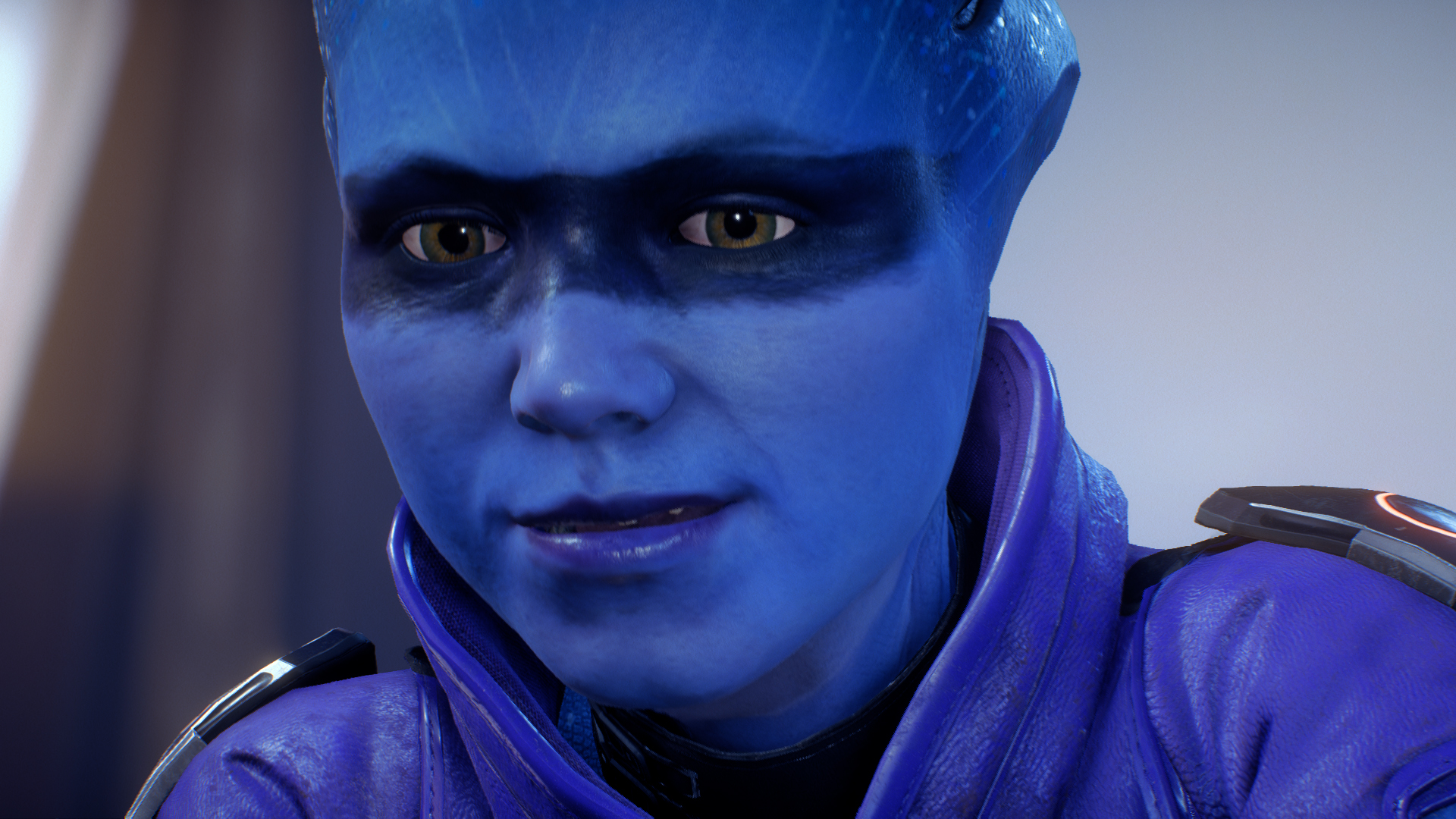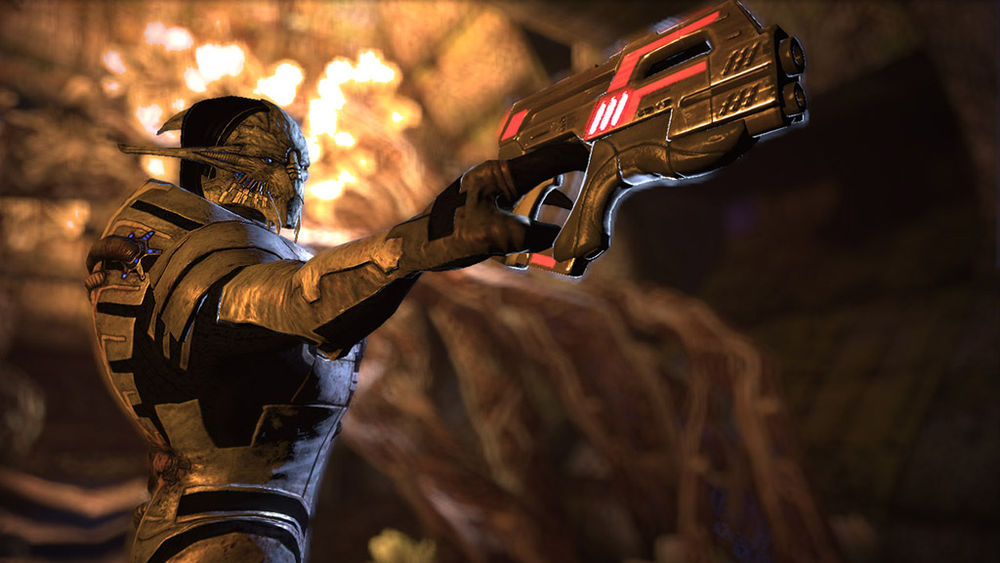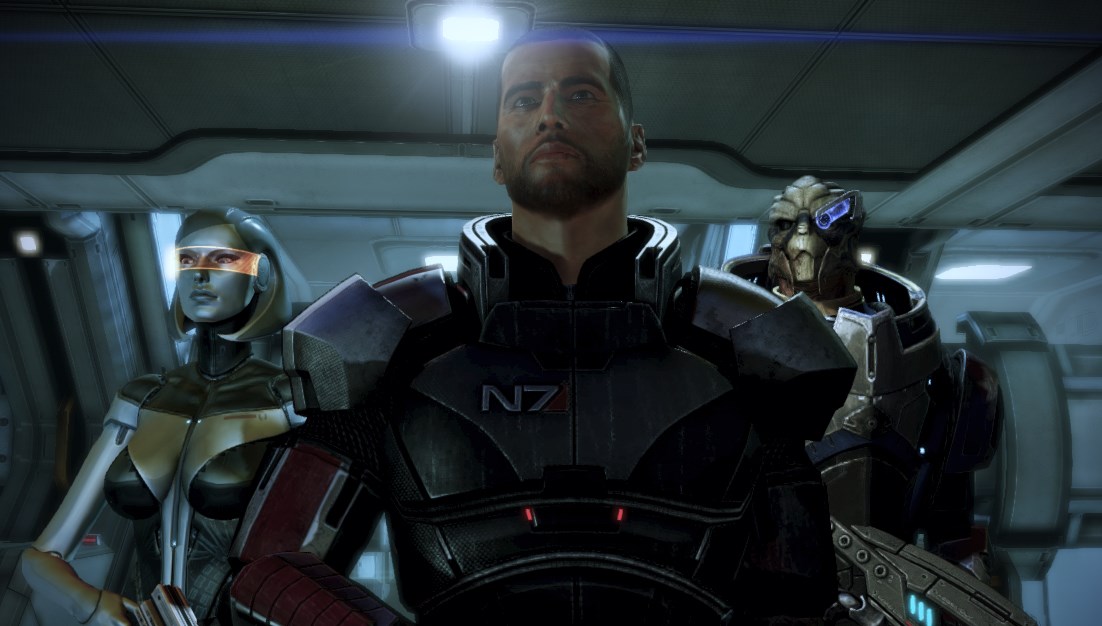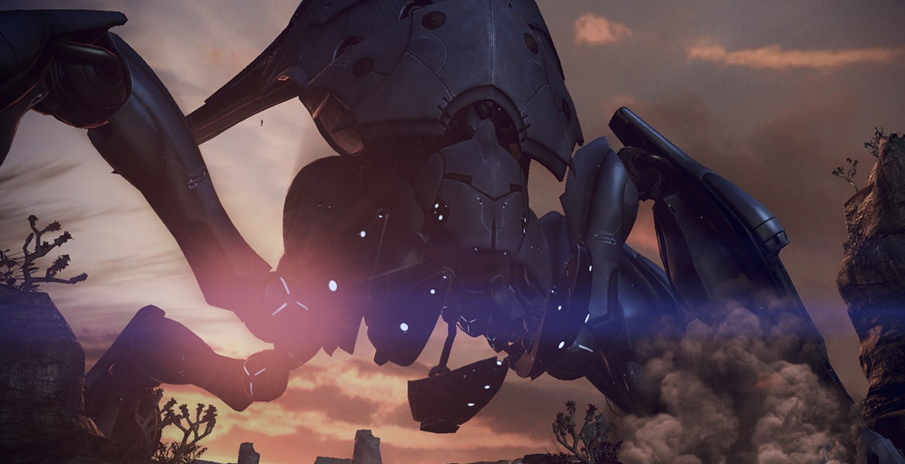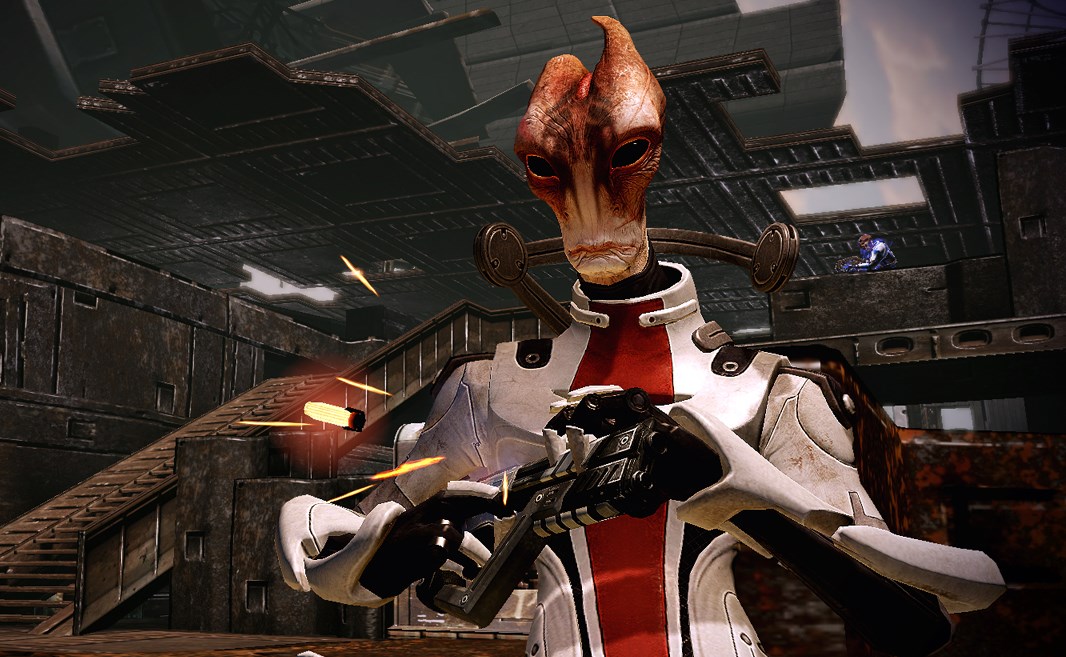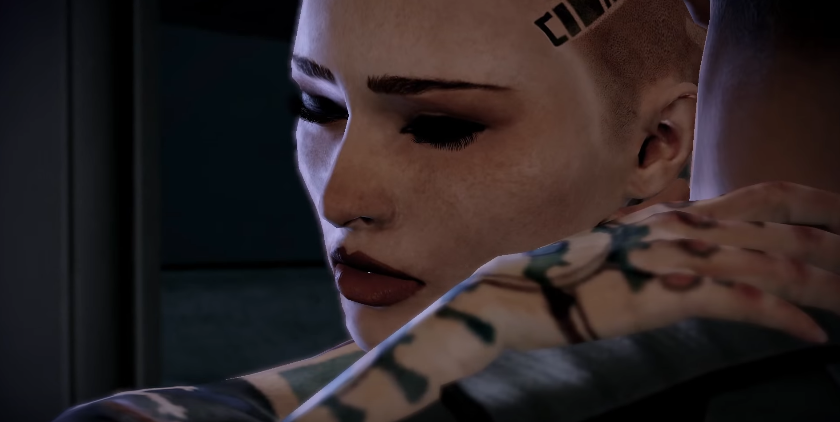The Mass Effect games ranked from worst to best
Our definitive ranking of Mass Effect games.
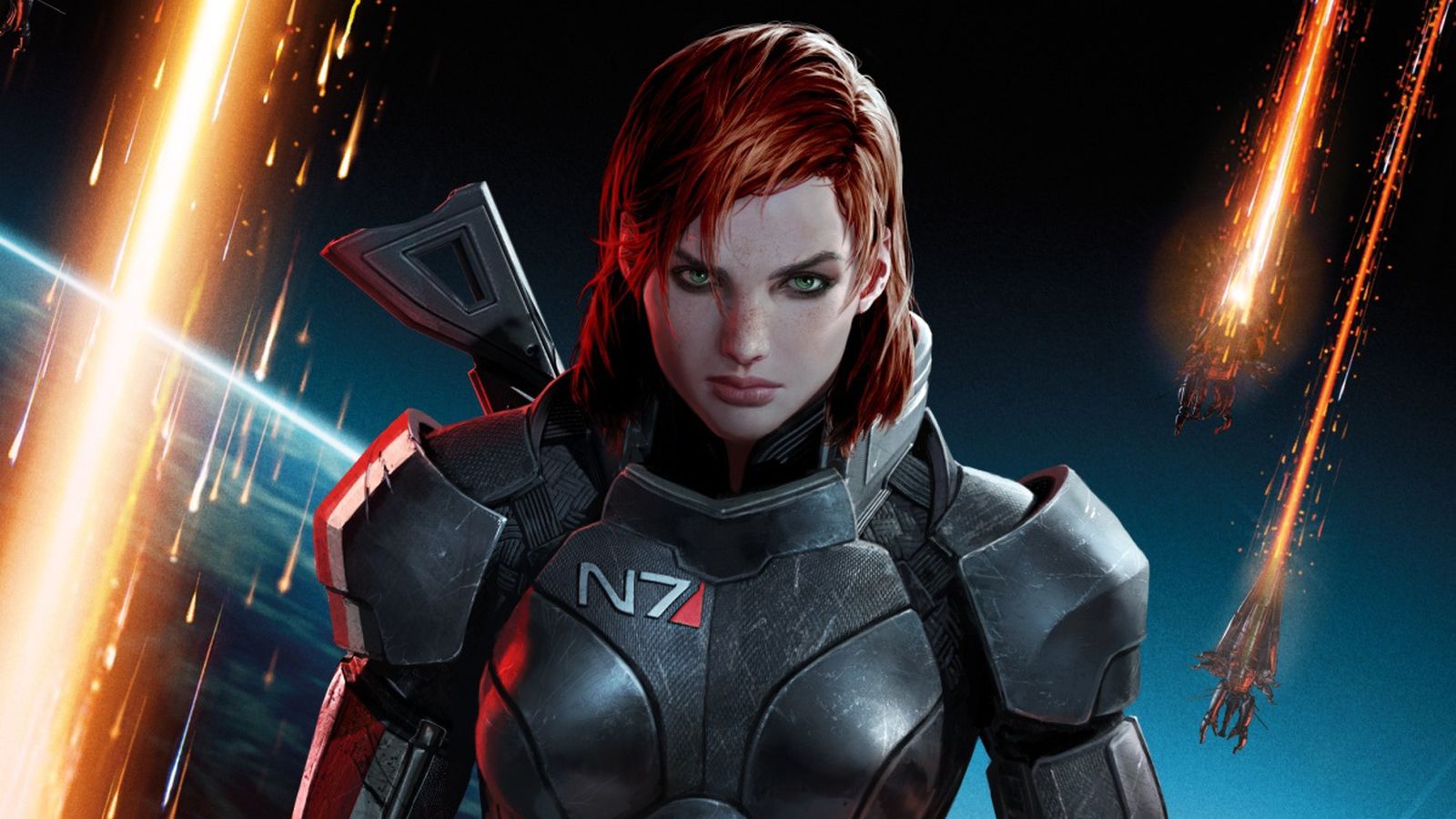
November 12, 2024: No new Mass Effect games have launched since we've published this list, unless you count the Mass Effect Legendary Edition which we thoroughly enjoyed. But, it doesn't stand as it's own experience so we didn't include it in our list.
The grand question of which Mass Effect game is best is destined to crop up at some point. Age-old fans of the series will have a unique take on the list, arguing tooth and nail to put their favourite forward, but to save you the struggle of deciding yourself we've ranked every Mass Effect game from worst to best in our own suicide mission.
As much as we are concrete in our rankings, it’s easy to understand why the opinions of players vary so wildly. The Mass Effect games are a collective space opera spanning over a hundred hours of love, death, and ancient alien doomsaying spun out in branching paths specific to the person who played them. While some players spent hours getting to know Wrex, others killed him immediately.
Some thought Mordin a murderous, pompous dingbat while others gave him a chance for redemption. Some players punched every character they could, others kissed every character they could. Deciding how you want to play is all part of the fun, and that's bound to affect your ranking of the series. So even though your opinion may differ from ours, here's what we would rank the Mass Effect games from worst to best.
Mass Effect Andromeda
The promise of a new galaxy, far, far away was too much for Andromeda’s to handle. After 400 years of continuous space travel in one direction, somehow the new system has fewer alien races, less biodiversity, and even more banal ancient alien tech strewn about each planet. If only excavating a pyramid were as easy as solving a simple glyph-based Sudoku puzzle.
We’ve written about the problems we have with Andromeda at length: the squadmates are barely memorable enough to rank, the combat is more nuanced than your relationships, the aliens feel like reskinned humans that are cool with colonization, and despite using the same tools as The Witcher 3 for quest design, the awful writing can’t sustain them. Some of our bigger complaints, like the creepy eyes and excruciating planet scanning system, have been tweaked in post-release patches, but they don’t detract from the larger truth that Mass Effect Andromeda is a game far too big for its own good.
As a result, the open worlds are empty, lacking any natural curiosities besides quest markers. Southeast Idaho's black desert is a more interesting landscape than nearly any planet in the game. And chances are, that quest marker is just going to send you on an aimless trip all over the surface fetching items for short stories packing as much meaning as a weekly drunk text from my dad. It’s hard to imagine the future of Mass Effect in this new setting with a similar structure.
Even so, no one else but Bioware makes games like this. There’s fun to be had in Mass Effect Andromeda, either in the customizable combat or in the occasional charming conversation with a crewmate. Just expect to sift through dozens of hours of cripplingly safe sci-fi to find something to love.
Keep up to date with the most important stories and the best deals, as picked by the PC Gamer team.
Mass Effect
The original Mass Effect is still a great game, but in the rearview, its flaws are clear as day. The combat is clunky, its pacing isn’t consistent, and planetary exploration is an empty vessel except for the occasional Thresher Maw. But each flaw represented early ideas that Mass Effect 2 and 3 crystallized in the long run.
Time hasn’t been kind to the combat. The vestiges of Star Wars: Knights of the Old Republic are still visible in the busy combat interface, and it’s obvious that those two ideologies—third-person shooting and actionbar RPG efficiency—failed to find a sweet spot until Mass Effect 2, and weren’t refined until Mass Effect 3. In the original game, you can aim directly at an enemy and miss because of math. Tell the teachers of the world, scream it from the mountaintops. Math is bad.
While you’re at it, scream about the Mako. There are some people that choose to die on the Mako’s Hill, which is a shame because while it may align with one of the series’ greatest strengths in exploration, it doesn’t ever approach its full potential. At best, the Mako is a dopey physics turret on wheels that gets you to and fro. Otherwise, planetary exploration is limited to bouncing around empty terrain until a space worm eats you, or worse, you get stuck in the nonsensical mountain topography. I’m not sorry: The Mako Is Bad 2016™.
Grievances aside, Mass Effect’s greatest achievement is in how it introduces an entire galaxy and history with the most restrained and self-contained story of the bunch, featuring the series' most sympathetic villain by miles, Saren. He comes off as a stern, militaristic jerk, but discovering his true motives turns him from Videogame Bad Guy into a sympathetic, tragic character. He wants to form an alliance with the Reapers to prevent them from harvesting the whole of organic life. He wants to save the damn universe. Well shoot, that sounds nice.
Navigating Saren’s sabotage alongside the frustrating bureaucracy of the Citadel Council while grappling with the privilege of becoming a Spectre—basically an intergalactic super cop—sets up some grounded (for sci-fi) moral and political dilemmas. Do you abuse your newfound power to sidestep and possibly supplant the Council? Or do you work with them despite their distrust of humanity?
No matter, the Reapers make their presence known and you’re forced to make some difficult decisions. And despite their apocalyptic prophesying, I remember the first time I completed Mass Effect when the idea that I’d be playing two more games over the next five or so years with my Shepard dawned on me. Even though I didn’t like the combat or clumsy Mako rides much back then, I still felt a profound sense of excitement knowing my specific journey was far from over and that it would probably only get better from here. Mass Effect is an imperfect game, but laid a perfect foundation for a quickly ballooning universe that I’ve yet to tire of nearly 10 years later.
Mass Effect 3
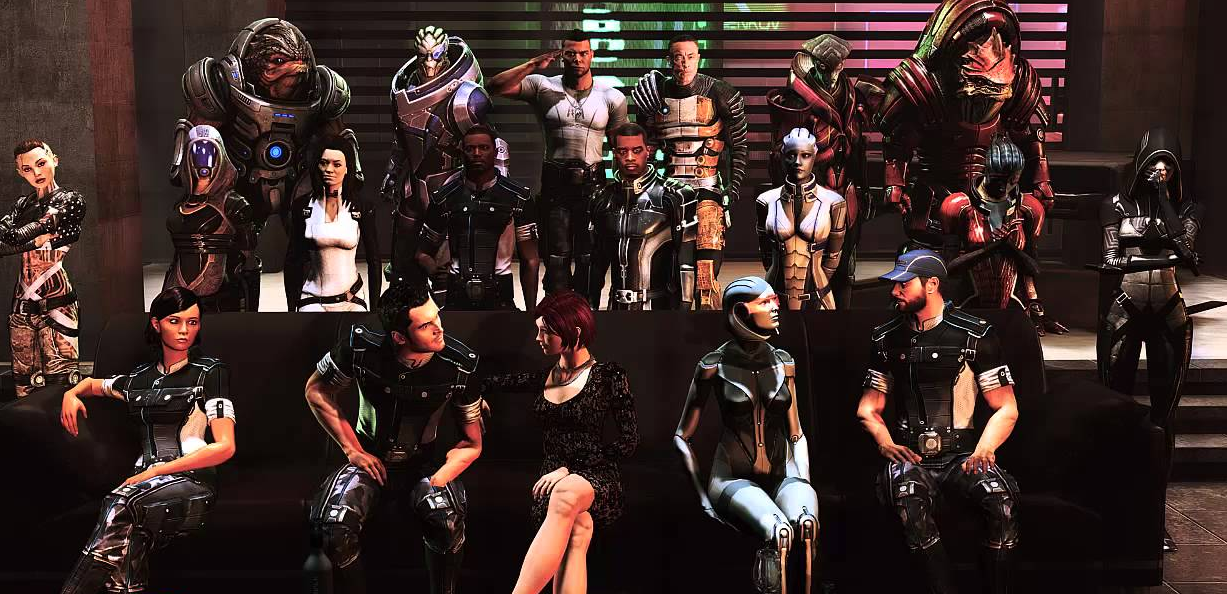
Perhaps the best DLC add-on in the entire series, The Citadel was a sweet, subdued adventure that took place after the end of ME3 that reunites old friends and lovers with one last party.
It’s easy to forget that Mass Effect 3 wrapped up a dozen character arcs with a tight series of tremendous finales and elegant third person combat scenarios. Instead it gets an inordinate amount of flak for its final few minutes. I get it. Introducing a moral fulcrum in the form of a dead kid we know next to nothing about and using his ghost to determine the fate of the galaxy in three assorted flavors (red, blue, or green) made the series conclusion feel more hamfisted than it had to. I made my robots and people into cyber plants with a green light or something—it was silly.
The ending and themes have their problems, sure, but fixating on them distracts from the otherwise excellent third act, especially in terms of what made Mass Effect 2 so great: character. For the dozens of pins Mass Effect and Mass Effect 2 set up, Mass Effect 3 knocks a ton of them down, giving the majority of its characters and conflicts lovely goodbyes. In one of many, Mordin dies in poignant self-sacrifice as he comes to terms with the mistakes he made in engineering the genophage, and opts to disperse the cure before an explosion consumes him whole. Unless you shoot him to stop it, that is—or if a certain Krogan is clan leader, Mordin will disappear and fake his death. He may not even be in your game at all if he died in Mass Effect 2. The tall stack of variables Mass Effect 3 juggles and follows through on are staggering for how cohesive it feels, largely because the Reaper narrative needs a neat bow, and fast.
In Mass Effect and Mass Effect 2, the Reapers were still coming, but they felt like a distant threat, an excuse to assemble a hodge podge team of sci-fi weirdos, and the best time to get to know someone is under the certainty of doom. But in Mass Effect 3, the Reapers are here, and by god, they’re levelling cities. The narrative manages to sandwich a galactic conflict with a satisfying series of character arcs in a batch of reunions that avoid playing like a sitcom reunion episode. Everyone is under a lot of pressure—saving organic life, and all—so nearly every mission carries the same urgency as the climax of Mass Effect 2. This comes at the expense of gathering an entirely new team and getting to know them (a BioWare staple) but if viewed as a direct extension of Mass Effect 2 rather than a game meant to stand on its own, it becomes much easier to appreciate Mass Effect 3 and the characters you’ve come to know over the course of the series.
It’s not a great final impression, but more than any disappointment, I remember the faces I punched and kissed along the way.
Some are still with you, some have moved on. Tali, my BFF, returned to the Quarian fleet in a leadership role to take back their home planet from the Geth. I felt proud, watching her take charge. Wrex is a clan leader back on Tuchanka, leading the crusade for a cure to the genophage, a virus designed to make krogan females infertile. If Mordin manages to cure it, Wrex names his firstborn after him—you beautiful space lizard man, you. Each crewmember, new and old, still have individual stories, but because there’s no sidestepping the Reapers this time around, they all tie into the greater conflict, making Mass Effect 3 feel more urgent and swift than its predecessors.
And it’s because of this that many players found the ending so abrupt and insubstantial. Rather than getting a hyper specific ending that reflected the branching decisions of their Shepard’s life, the overall course of the series was much more parabolic, widening in Mass Effect 2, but ultimately sprinting to the same hokey decision point in Mass Effect 3. It’s not a great final impression, but more than any disappointment, I remember the faces I punched and kissed along the way.
Mass Effect 2
Mass Effect 2 represents a significant shift for the series and BioWare’s design sensibilities as whole, placing its greatest efforts into developing deep, interesting characters—sometimes at the expense of urgency, but ultimately in service of creating a much more personal experience.
It’s not the most refined game in the series, but Mass Effect 2 is fortunate enough to exist in a suspended state of expectation between what the first game set up and what the third was meant to fulfill. It doesn’t need to reintroduce the galaxy or tie up any loose ends, and because of that, it can play a little looser with its structure. The Collectors and Reaper threats are always lurking in the background, but never really thrust the larger narrative forward until the very end, which lends more time to Shepard and their crew to hang out and scour the galaxy for volunteers at their leisure. Despite the whole apocalypse scenario, there’s plenty of time to tend to each primary crew member’s particular problems via their loyalty questline. It’s a little too convenient, but worth the suspension of disbelief, because BioWare killed it with these characters.
Everyone has their favorite. I’m partial to Jack, a notorious criminal formerly locked away in a Cerberus test facility and mercilessly poked and prodded for the sake of science. She didn’t have a pleasant childhood, to say the least. I earned her loyalty by addressing her trauma in the most direct way we could: by planting a bomb in the test facility she was raised in. We fell in love despite our equally hard exteriors and learned to cry again (in private). My Shepard was an orphan, raised on the streets of some dirty megacity on Earth. Jack and I, we got each other, you know?
This is just one of 12 crew members, each with their own recruitment and loyalty missions, and distinct, flawed personalities. It’s through these relationships that Mass Effect 2 does its most potent world-building—not grand open world exploration levels and blockbuster spectacle, but through how a character speaks, what they’re wearing, what they perceive as kindness, if they can perceive kindness, their treatment of one another, and so on. For example, it becomes clear pretty quickly that the Krogan are a proud, aggressive species, but understanding why and how is an exercise in empathy, which is key in nearly every companion questline. Turns out, Krogan can be pretty chill (which Mordin learned tragically late).
This isn’t to say it’s just an expensive visual novel. Mass Effect 2 also revamped the combat into a fluid tactical third person shooter with expressive RPG trappings and a heavier focus on real time interactions. It wasn’t truly refined until Mass Effect 3, but it streamlined the management of squad members and their individual abilities without stripping away complexity. You can play it like a third person shooter without ever pausing, or you can freeze time as you like, moving members and deploying abilities like a sci-fi middle manager due for a promotion.
All this, driven by a sense of impending doom through the slow unravelling of the mystery surrounding the Collectors, and one of the best hooks in RPG history: prepping for a suicide mission. The high stakes aren’t trivialized either—you’re heading into the Collector base, a pulsing hive of powerful ancient technology controlled by the Reapers where it’s possible for you and everyone you bring along to die. And if they don’t survive, it’s probably your fault. I lost Thane and still feel pangs of guilt when I remember. A fictional character with green skin and bug eyes! Guilt!
Mass Effect 2 is the best in the series because it dedicates so much time to building such meaningful relationships, and then puts them at great risk. Sure, it’s a shiny, action-packed space romp, but above all else, Mass Effect 2 is an exciting, moving collection of sci-fi vignettes about love and loss.
James is stuck in an endless loop, playing the Dark Souls games on repeat until Elden Ring and Silksong set him free. He's a truffle pig for indie horror and weird FPS games too, seeking out games that actively hurt to play. Otherwise he's wandering Austin, identifying mushrooms and doodling grackles.
- Kara PhillipsEvergreen Writer
